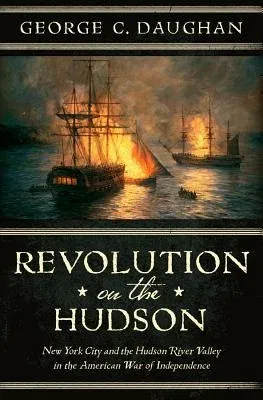No part of the country was more contested during the American Revolution
than New York City, the Hudson River, and the surrounding counties.
Political and military leaders on both sides viewed the Hudson River
Valley as the American jugular, which, if cut, would quickly bleed the
rebellion to death.
So in 1776, King George III sent the largest amphibious force ever
assembled to seize Manhattan and use it as a base from which to push up
the Hudson River Valley for a grand rendezvous at Albany with an
impressive army driving down from Canada. George Washington and every
other patriot leader shared the king's fixation with the Hudson.
Generations of American and British historians have held the same view.
In fact, one of the few things that scholars have agreed upon is that
the British strategy, though disastrously executed, should have been
swift and effective. Until now, no one has argued that this plan of
action was lunacy from the beginning.
Revolution on the Hudson makes the bold new argument that Britain's
attempt to cut off New England never would have worked, and that
doggedly pursuing dominance of the Hudson ultimately cost the crown her
colonies. It unpacks intricate military maneuvers on land and sea,
introduces the personalities presiding over each side's strategy, and
reinterprets the vagaries of colonial politics to offer a thrilling
response to one of our most vexing historical questions: How could a
fledgling nation have defeated the most powerful war machine of the era?
George C. Daughan--winner of the prestigious Samuel Eliot Morrison Award
for Naval Literature--integrates the war's naval elements with its
political, military, economic, and social dimensions to create a major
new study of the American Revolution. Revolution on the Hudson offers a
much clearer understanding of our founding conflict, and how it
transformed a rebellion that Britain should have crushed into a war they
could never win.

